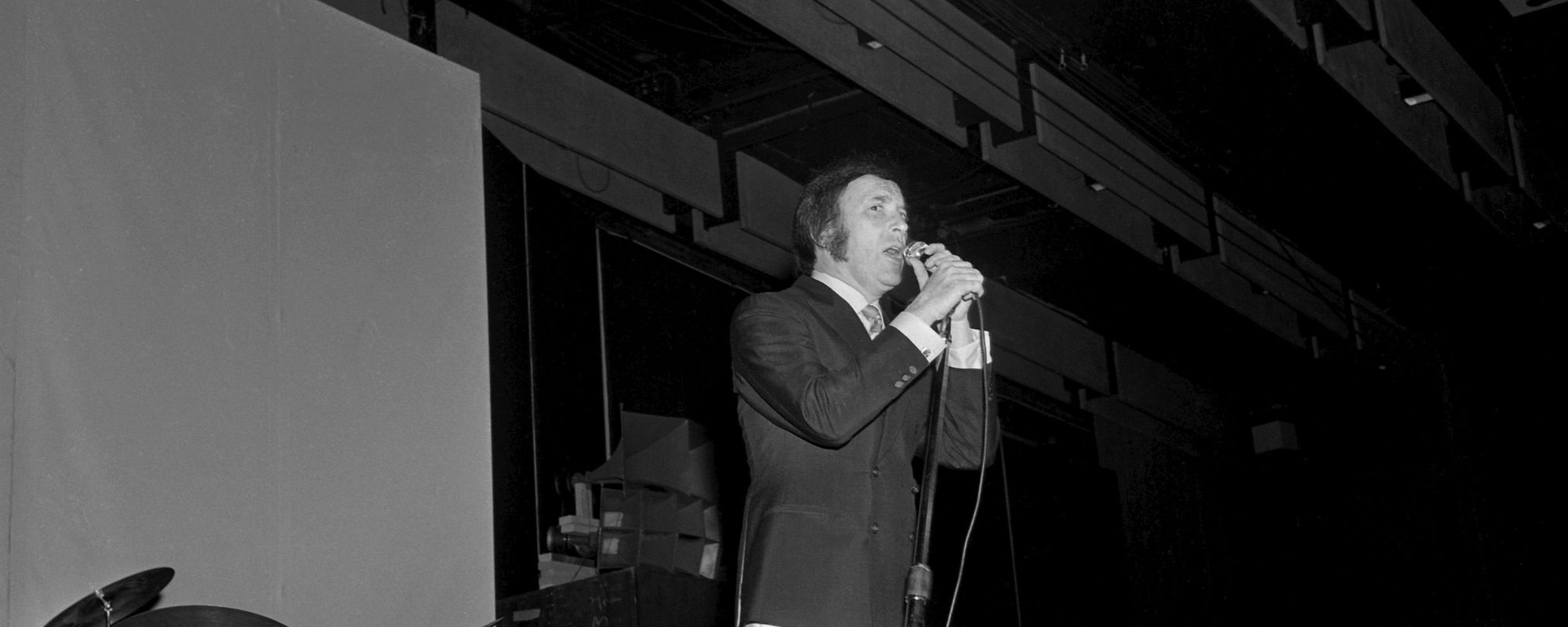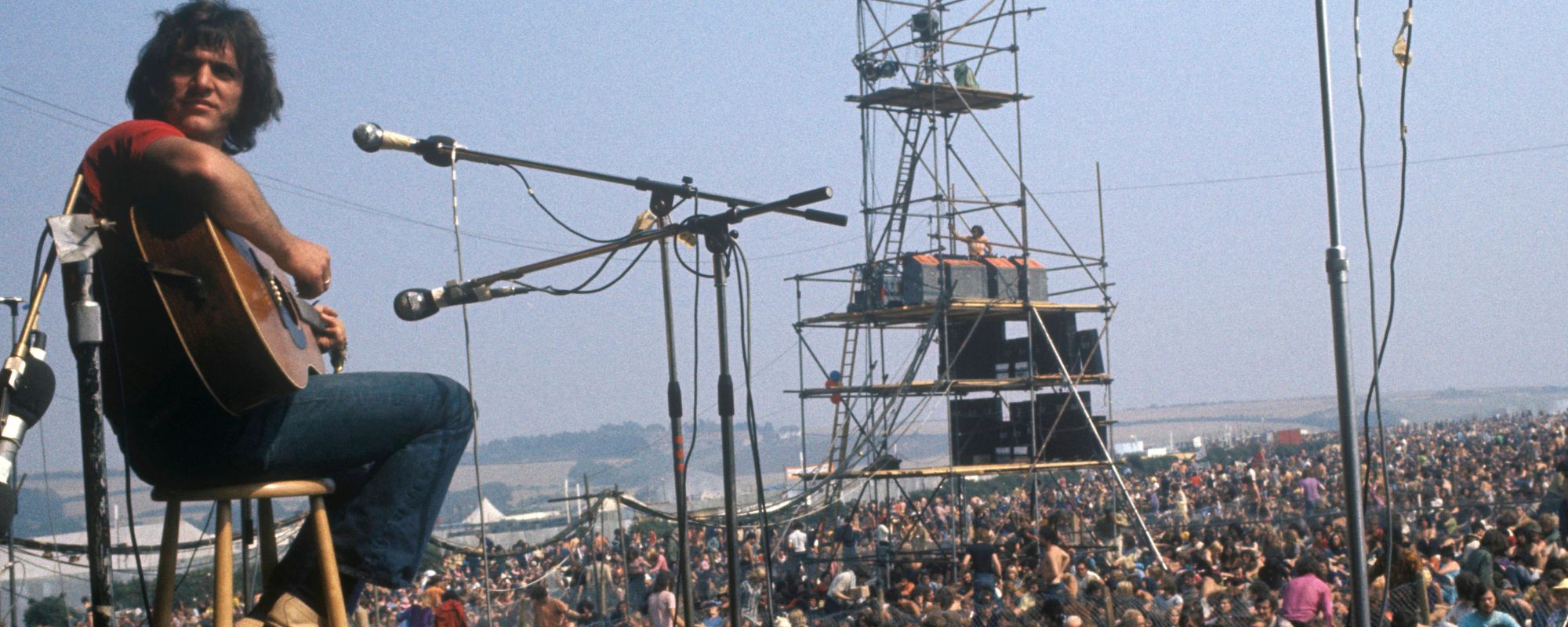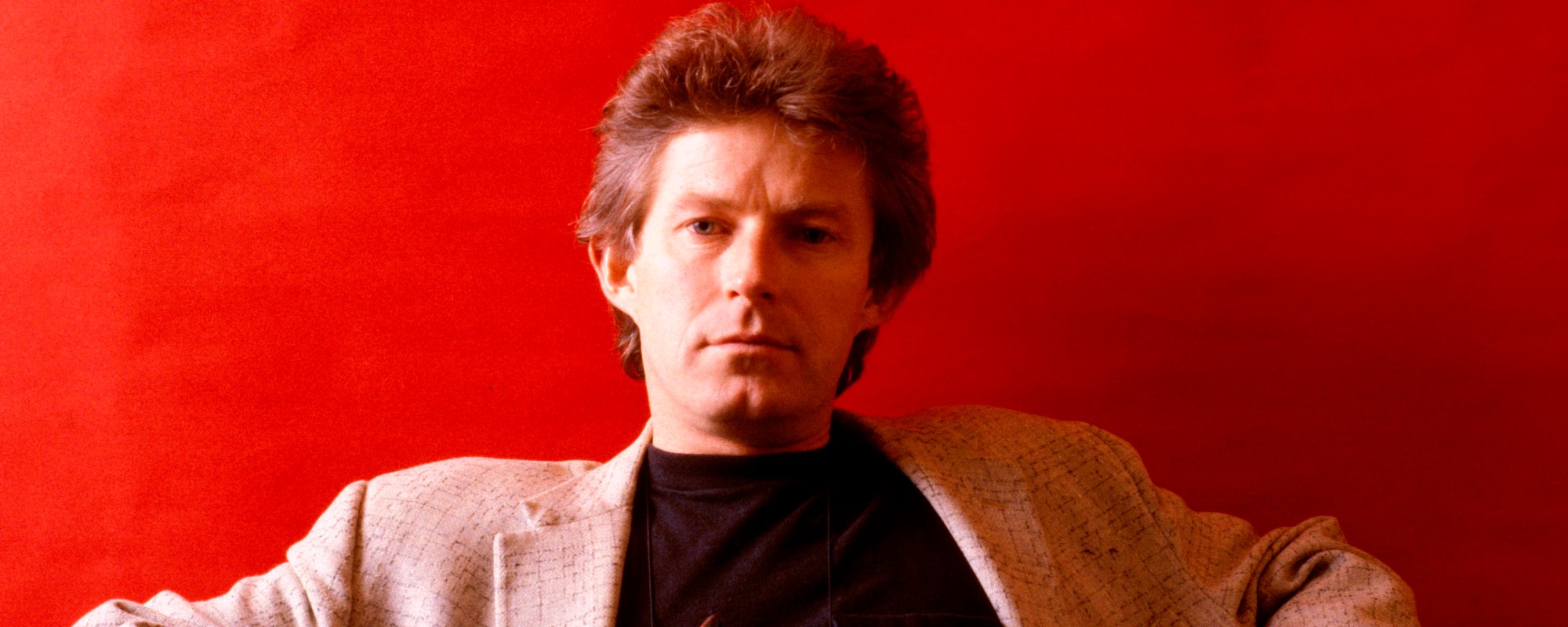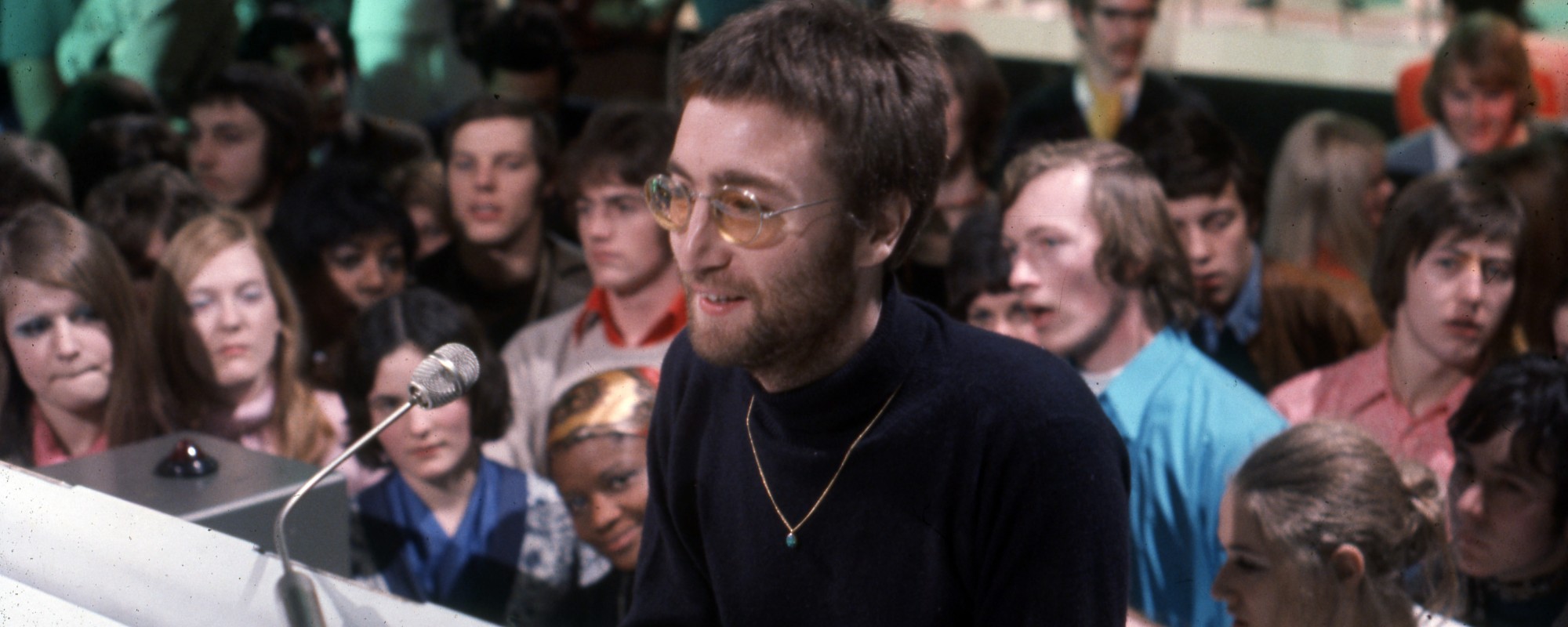Within the decade and a half after releasing his second solo album, Non-Stop, and whilst releasing six more albums with Erasure, Andy Bell started building a collection of songs with producer Dave Audé. Then, when Bell turned 60 in 2024, a series of coincidences and revelations around his birthday tapped into his spiritual senses and the release of his third release, Ten Crowns.
“I’ve been consulting my astrology, and they were all basically saying ‘You’ve had the kibosh on you for 13 years,” recalls Bell. “Now, all of a sudden, it’s going to be taken off, and the whole world’s going to be your oyster. And everything happened on the day (Bell’s birthday).”
Named after the ten crowns (spheres) featured on the Tree of Life in Kabbalah, representing the path toward spiritual enlightenment, the album reflects Bell’s spiritual growth and healing, “fighting demons,” celebrating life, and reaching for something more divine. “I was coming out of this 13-year period where there was going to be an open door,” he says. “And on the day of my birthday, the 25th of April, I had the ten crowns as a card during one reading, and the star came up five times. I know there are jinxes and things, but I take a lot of stock in these things.”
Even his birth year, 1964, holds a deeper spiritual meaning for Bell now. “It doesn’t matter if you were a baby then, you’re going to get some of that DNA rubbed into you like a basting chicken,” says Bell. “The Beatles also had their first hit around this time, so just being born into that musical period in history, they didn’t last very long. With classical music, it lasted maybe 100 or 200 years. With pop, it’s probably going to last 100 years, so to be born in the middle of that 100 years, that’s all within my history.”
Videos by American Songwriter
Growing up, Bell was exposed to everything from the 1930s and ’40s big bands to Frank Valli and the Four Seasons, the Kalin Twins, and Elvis Presley, along with R&B, the country music of Charlie Pride, Conway Twitty, Slim Whitman, Phil Spector’s wall of sound pop, and songwriters like Gerry Goffin and Carole King.
“I knew all these people, and some didn’t even have a clue who they were,” laughs Bell. “I was inadvertently aligning myself with the Brill Building writers from such a young age. I missed the rock genre completely, then there was the resurgence of two-tone in the UK, and I didn’t get into prog rock until maybe Genesis.”
Also an early fan of Dave Stewart and Annie Lennox’s pre-Eurythmics band the Tourists, the Pretenders, X-Ray Spex, Bell was particularly drawn to Kate Bush and the New Romantics movement during the early ‘80s. He jokes that there was a reason why he believed straight men shouldn’t have worn makeup during this era.“When I was a teenager, I was thinking, ‘Oh, straight men, you shouldn’t be allowed to wear makeup because you’re not gay,’” laughs Bell. “‘You don’t wear it properly.’ My favorite [band] was Visage, because that was like a makeup tutorial.”
Bell’s six decades of life and music align on Ten Crowns, which was pieced together with Audé over 12 years. The two first met when Audé was DJing at a club owned by Stephen Moss, who later became Bell’s husband, and first collaborated on dual No. 1 dance hits “Aftermath (Here We Go)” in 2014 and “True Original” from 2016.
After picking up a Grammy for his remix of Bruno Mars and Mark Ronson’s “Uptown Funk” in 2015, Audé relocated to Nashville, which seemed like a world away from where Bell had previously recorded solo and with Erasure. But it’s there where he started working with Audé to place all of the gospel, electro-space pop dancing around his head.

Having played with Erasure at Ryman Auditorium in 2006, Nashville wasn’t too alien to Bell, but he used the sights and sensations of being in a different comfort zone to his advantage.
“There’s a different color that comes from being placed in a spot like that,” Bell says. “I didn’t realize how country-ish a lot of Erasure songs were, style-wise, like on ‘Blue Savannah’ (1988) and stuff like that. If you change the accent, it would turn into a country song.”
Ten Crowns opens on the more celestial plane of “Breaking Thru The Interstellar” and absconding to a place far, far away—Soaring through the clouds / Towards another paradise / Taking me to the fifth dimension—and into “Lies So Deep,” featuring singer Sarah Potenza, another collaborator of Audé’s, and former contestant on The Voice.
Heartache is confronted on “Heart’s A Liar,” a reworking of a song by Italian-English artist Luciana, featuring Bell’s longtime friend Blondie’s Debbie Harry, who was previously the subject of his Non-Stop track “DHDQ” (“Debbie Harry Drag Queen”). A longtime supporter of the LGBTQ+ community, Harry added an extra special touch to “Heart’s a Liar” by recording it on Gay Pride Day.
From the scintillating “For Today” and “Don’t Cha Know” and frenetic “Put Your Empathy on Ice” on the detriments of living in the online world —No-one can make up their minds / Because their minds are made up for them—wherever Bell ends up on Ten Crowns, everything comes back to dance. The bass-and-drum pulse of “Dance for Mercy” is a more understated meditation on reconnecting to one’s “time on earth,” with “Dawn of Heaven’s Gate” delivering a more religious epistle of unity.
A song he says reminds him of Donna Summer and Giorgio Moroder’s collaborations, “Dawn of Heaven’s Gate” was one that flourished visually, while picturing the pyramid-shaped Shard in London. “I thought it was this kind of visualizer for heaven or something,” says Bell. “To me, we build utopia or heaven in our own minds, and it’s between us. It’s not another place. It’s just between all of us.”
Bell taps into something more profound on the throbbing “Godspell”—Get thee behind me, charlatan / Get thee behind me, sycophant / Get thee behind me, false prophet—before closing on the orchestral, gospel-tipped “Thank You.”
In between Ten Crowns, Bell is still fixed on Erasure, which released Neon in 2020 and Day-Glo (Based on a True Story) in 2021, and has been working on some new material with Vince Clarke, who lost his wife of 20 years, Tracy Hurley Martin, to stomach cancer in 2024. Bell experienced a similar loss in 2012 with the death of his longtime manager and former partner, Paul M. Hickey, and says he is giving Clarke the time and space he needs before they get back to work. For now, the timing of a new Erasure album will be directed by Clarke, and where and when he wants to go next.
“I’m treading very delicately with Vince, because I’ve been through the same thing myself, and I was very fortunate that I had Stephen here at my side,” shares Bell. “Vince, he likes to be on his own, but we’re trying to keep an eye on him, trying to be [there] as much as we can be, but he is a very private person. You can only go so far.”

The two had several writing sessions, says Bell, and are planning to convene in August 2025. “It’s very tentative, but I’m hoping it’s going to flourish and we don’t have to be too sad about everything,” he says. “I could already see he’s [Clarke] got this just clarity and depth in his eyes. It takes a tremendous amount of hurt in this life. It’s awful that we have to go through these things, but it’s just part of life, isn’t it?”
Since releasing their debut, Wonderland, in 1986, Bell says much hasn’t changed between how he and Clarke write together. “Vince and I, we were much more old-fashioned romantics, being compared to poets like [Lord] Byron, or something,” says Bell, who says he learned how to play around with the notes in songs from his days singing in choir in Cathedral School in England.
“I always knew when something was being written, what the next note was going to be in sequence,” says Bell. “And when you become a songwriter, you try not to use that next note. You try to use another note that will have a special payoff in some way.”
Bell says that’s how “A Little Respect” came together. The duo’s 1988 song was even used as an unofficial theme song for the British Rugby team, the Hull Kingston Rovers. “When you see a whole stadium of these macho rugby player fans singing ‘A Little Respect,’ it’s really amazing,” says Bell. “To me, that’s what the music is for. It’s for bringing people together, and forgetting all our troubles, and having a lovely time together.”
For Bell, Ten Crowns marks the next stage of his life and music. A turning point. Perhaps, an awakening. It’s Bell’s Renaissance.
“The whole thing with ‘Ten Crowns,’” says Bell, “is, I’ve been waiting for my ugly duck-turned-swan moment.”
Photos: Sean Black







Leave a Reply
Only members can comment. Become a member. Already a member? Log in.